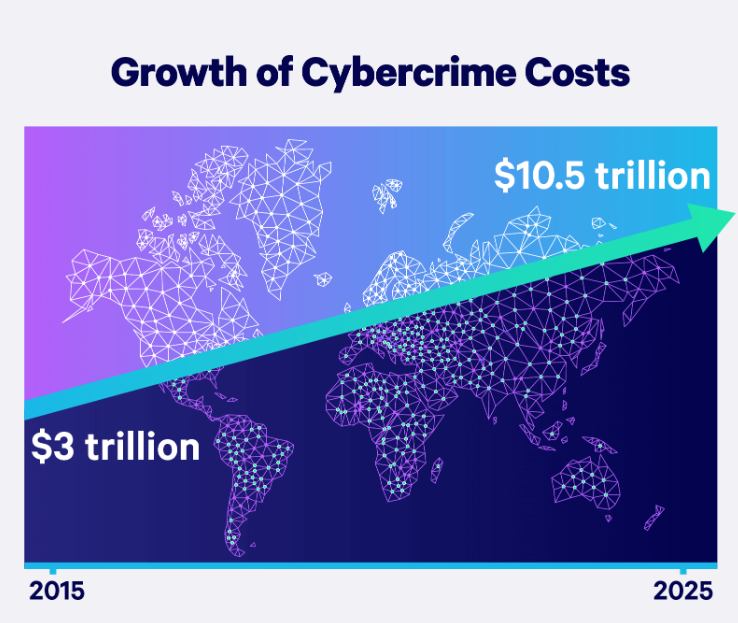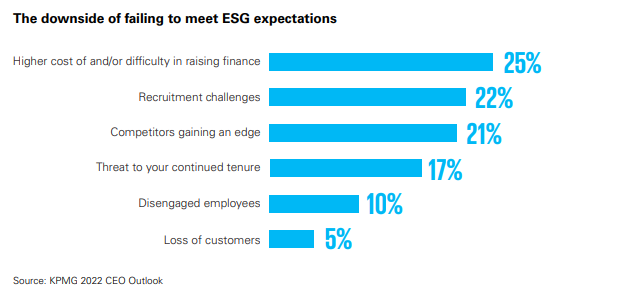Topics: cybersecurity, ESG, global talent shortage, Inflation and Recession
2023 C-Suite Outlook: Six Business Challenges Every Organization Needs to Navigate This Year
Posted on January 16, 2023
Written By Siddharth Sujan

As the world continues to grapple with the aftermath of the COVID-19 pandemic, businesses of all sizes are facing a new set of challenges in 2023. Economic stagnation, geopolitical turmoil, and social unrest are just a few of the hurdles that organizations must navigate in order to maintain growth and continuity.
For C-suite executives, the task of leading their organizations through these challenges is especially critical. In this challenging business environment, it is more important than ever for leaders to be well-prepared and able to address the following six key business challenges in 2023:
1. Economic Downturn
2022 was marked by unprecedented economic turmoil, with record-high inflation rates and shrinking economies around the world. According to the International Monetary Fund, global GDP is projected to decline by 4.4% in 2020. Many experts predict a global recession in the near future. In fact, a recent survey by KPMG found that 79% of CEOs are already preparing for a recession in 2023.
To mitigate the effects of inflation and economic downturn, C-suite executives must take proactive measures to minimize the impact on their businesses and workforce. One strategy that has proven effective is the implementation of agile operating models. These models can improve overall efficiency, address supply chain issues, and cut costs by increasing spend visibility. By adopting such measures, organizations can navigate the economic turmoil and continue to drive growth.
2. War for Talent
In recent years, the global talent shortage has been a major headache for businesses worldwide. Dubbed as the “Great Resignation,” this phenomenon has made it increasingly difficult for companies to attract and retain top talent. As we head into 2023, the situation may only get worse as businesses brace for a potential recession. However, for some executives, this presents an opportunity to shift the power dynamics in their favor.
While sectors like IT & Retail have recently witnessed massive layoffs, experts believe that the labor market will continue to be tight, at least in the near future. Forward-looking executives, however, will try to benefit from such layoffs and build high-performing teams to drive growth. Additionally, business leaders are also expected to continue prioritizing employee well-being, L&D opportunities and a strong company culture that helps attract & retain talent.
RELATED BLOG: Read this article to know what strategies are helping GBS leaders ensure the success of their projects amidst the talent crunch.
3. Customer Expectations
Amongst the many behavioral changes brought about by the pandemic, the shift in how people make buying decisions is one of the most prominent ones. Ever since the pandemic, buyers have not only been more cautious about their purchases but also expect businesses to go beyond their product or service offering and deliver memorable experiences.
With the recent rise in inflation, sales cycles are expected to slow down further in 2023 and a conservative buying approach could well become the norm. As a result, it will become critical for C-suite executives to understand their customers’ psyche, address their pain points and deliver true value by turning the act of purchasing into an experience.
4. Data & Cybersecurity
Cybersecurity has been a concern for businesses for the longest time, but 2023 could be the year when C-suite leaders make it a top priority. With digital work becoming the way forward, organizations are more prone to cyberattacks than ever before. And the last thing any company would want to deal with in a volatile economy is a cybersecurity attack.

Business leaders are, therefore, expected to take proactive steps to protect their data and systems. Secure data storage, implementing organizational policies and training staff on data security measures are key steps that will help business leaders address this challenge.
5. Sustainability & Social Responsibility
Climate change has, and will continue to affect businesses much beyond 2023. There is no denying the fact that sustainability is the need of the hour. In fact, consumers, especially in the post-COVID scenario, have become increasingly conscious about the sustainability of the products & services they use. This outlook change has led to many businesses upping the transparency factor and making strong ESG (Environmental, Social, Governance) commitments.

However, these commitments could now put C-suite executives in a spot. At a time when businesses would want to eliminate any and all additional spends, ESG measures can shoot up operational costs significantly. While many business leaders will consider pausing planned ESG efforts, truly forward-looking executives will have to weigh in the short and long-term value and come up with an ESG strategy that adds to growth in the long run.
Business leaders will have to prioritize sustainability and social responsibility in order to meet the changing expectations of consumers, employees, and regulators.
6. Economic and Political Instability
Economic and geopolitical instability can present a variety of challenges for CEOs and business leaders in 2023 such as uncertainty, volatility, supply chain disruption, cost management, international trade and financial performance. These challenges can make it difficult for business leaders to predict and plan for the future, adapt to changing market conditions, manage risk, attract and retain top talent, access global markets and secure funding.
Business leaders will have to be more agile, strategic and flexible in their decision-making and leadership approach to navigate these challenges. They will also have to review and adjust their risk management strategies to ensure the continuity of their business.
To sum up, 2023 promises to be a year of both opportunities and challenges. Business leaders that adopt a future-first attitude, proactively address customer needs, embrace modern & innovative business solutions and keep an empathy-driven approach towards their teams are likely to gain a competitive edge and drive organizational growth.
Originally published Jan 16, 2023 06:01:33, updated Jan 16 2023
Topics: cybersecurity, ESG, global talent shortage, Inflation and Recession







